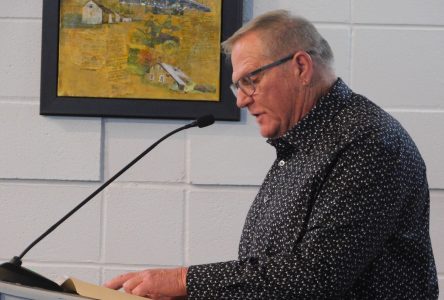Long-time resident of East Hawkesbury Joe Kelley has collected over 50 signatures on a petition opposing a proposed expansion of the Mayer Landfill.
Kelley presented the petition to the East Hawkesbury council during the special meeting on Monday, November 27. “The council are concerned about it too,” said Maor Robert Kirby upon receiving the petition. However, the East Hawkesbury council did not vote on any concrete action during the meeting.
“I’ve been living where I live for over 55 years, and it’s only in the past two years that it’s started to smell,” explained Kelley.
Kelley said he knocked on doors to collect signatures from residents of East Hawkesbury and Champlain living close to the landfill. According to Kelley, all except one person signed his petition immediately, most of them expressing concerns about the smell.
Mayer Landfill expansion plan
Mayer Sanitation Ltd. are seeking to expand their landfill by 650 000 cubic metres. According to a draft Terms of Reference (ToR) prepared as part of the Mayer Waste Disposal Site Environmental Assessment, at the current rate of use and with the current space, the landfill could operate for another six to seven years. The expansion would give the landfill site another 20 years of life.
Yannick Mayer, manager of Mayer Sanitation, said the process to expand the landfill may take three to five years and had to begin now.
Mayer said the landfill has not been taking in larger amounts of waste in the past years. In fact, the landfill site began sorting and transferring out recyclable materials in 2016, reducing the amount of waste being diverted to the landfill. Mayer Sanitation is also planning to install a liner under the landfill expansion to avoid groundwater contamination.
While the draft Terms of Reference states the expansion will help the company respond to a growing market demand and “take advantage of economic opportunities”, Mayer said he does not expect the landfill will receive more waste from municipalities outside the United Counties of Prescott-Russell (UCPR), but said he is willing to take on more waste from within the UCPR, if necessary.
“We’re not planning to import trash from the city of Toronto like other landfills in the region do,” said Mayer.
Mayer does not believe his landfill has been at fault for the smell in the surrounding area. He said East Hawkesbury residents are likely smelling the Mironor compost facility located nearly three kilometres from Chute-à-Blondeau across the Ottawa river in Brownsburg. The compost facility, which manages food waste from Laval’s 383,417 residents, has received $5 million in financing for the expansion of its facilities, allowing it to process nearly 30 000 tons of organic matter every year. The first phase of the expansion was completed in 2023.
Seeking alternatives
Kelley believes the region should look into building a waste-to-energy plant, also known as an incineration plant, to process solid waste and transform it into energy through combustion. Radiant heat produced by burning waste serves in boiling water, creating steam to make power energy turbines.
While these waste disposal facilities have systems in place to filter parts of the CO2 and other gas emissions produced by waste combustion, they do not eliminate all greenhouse gases and other toxic emissions from the smokestack.
The cost to build one such plant is in the hundreds of millions of dollars. One incineration plant built in the Durham region near Toronto, cost nearly $300 million to build, a figure far outside the budget of a municipality of the size of East Hawkesbury. The Durham plant processes 140,000 tonnes of garbage each year and can power around 10,000 homes.
Incineration is also being looked at by the city of Ottawa as the city’s landfill is quickly running out of space.
Next Steps
The draft ToR can be read at https://mayerexpansionea.com/project-reportscanwill and comments can be sent through email at MayerEA@ghd.com until December 8th. The ToR will be sent to the Ministry of the Environment, Conservation and Parks of Ontario alongside comments from nearby communities for approval before any further step can be taken in the expansion of the Landfill.
The expansion may also require approval under the Ontario Environmental Protection Act, the Ontario Water Resources Act and the Canadian Impact Assessment Act.



